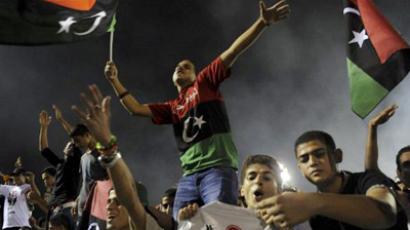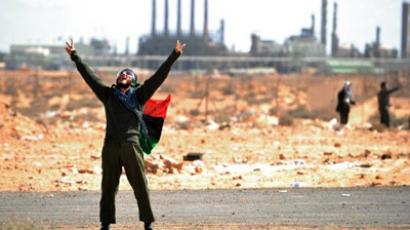'Libyan rebels to start killing each other'
Fresh from taking control of most of Libya, the Libyan rebels are already facing early signs of divisions.
Political satirist and author Ted Rall believes they are going to turn against each other. According to Rall, the divisions are fueled by the fact that many of the members of the National Transitional Council are former Gaddafi officials. Radical factions within the Libyan opposition are not going to accept them, Rall warned.“It’s not much of a revolution if you have former officials from the government that just has been deposed,” he argued. “In Libya they have effectively killed the Gaddafi regime, and now they are going to kill each other.”
‘Assad may sleep well’
With the NATO-backed revolution in Libya generally perceived to be an overall success, there has been speculation that the troubled regime of Syrian President Bashar Assad may be next in line. However, Rall argues that Syria is unlikely to become a target for military intervention for either the US or NATO.“All the signals are that the United States is overextended and that the Europeans don’t have any interest in this,” he said, noting that there is a geopolitical mix that comes into play in such cases. “So if I were Mr. Assad, I would sleep well tonight,” Rall claimed.At this point militarism is driving the political structure in the US and is allowing the system, both Republicans and Democrats, to distract Americans from major domestic issues such as widespread unemployment and underemployment, Rall continued.“The balance still tips towards militarism because the system still doesn’t really take economic problems very seriously,” he concluded.














